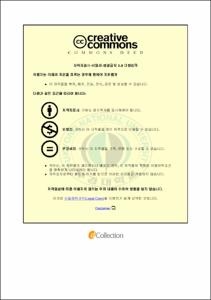SCM 참여기업들의 관계특성이 협업과 성과에 미치는 영향
- Abstract
- Through collaboration between buyers and suppliers, their companies try to achieve their own objectives and competitive advantages. It is known that relational characteristics between them also would influence the effects of collaboration, which would increase their performances. Many previous studies on the subject of supply chain have consistently claimed that they need collaboration between the partners of supply chains in order to enhance supply chain performance. A key factor on collaboration in supply chain is to identify the relationship between buyer and supplier as antecedents of collaboration.
This research is focusing on two types collaboration(operational collaboration and strategic collaboration) as the mediation variable between relational characteristics and supply chain performance. The first purpose of research is to examine the causal linkages among relational characteristics, collaboration, performance in the logistics firm and the manufacturing firm. The second purpose of research is to explore the differences between the logistics firm and the manufacturing firm in terms of the relationships of relational characteristics, collaboration and performance in SCM context.
To test the above research questions, the author collected data from logistics firm(N=164) and manufacturing firm(N=167). The proposed structural model was tested using the PLS(Partial Least Square) statistical program. The research results are as follows.
First, in case of the logistics firms, trust, and information sharing have positive influences on operational collaboration, and operational collaboration have positive influences on supply chain performance. Duration and information sharing have positive influences on strategic collaboration. However, strategic collaboration has non-positive influences on supply chain performance. The effect of relational characteristics on supply chain performance is mediated by operational collaboration.
Second, in case of the manufacturing firms, all of the relational characteristics(trust, dependence, duration, information sharing) have positive influences on two types collaboration(operational collaboration and strategic collaboration), and on two types collaboration have positive influences on supply chain performance. The effect of relational characteristics on supply chain performance is mediated by operational and strategic collaboration.
Finally, some differences between logistics firms and manufacturing firms SCM collaboration structure were found. Manufacture firms were found to have stronger causal relationships than logistics firms concerning the "trust → operational collaboration", "trust → strategic collaboration", "dependence → operational collaboration", "operational collaboration → supply chain performance", and "strategic collaboration → supply chain performance". However, logistics firms were found to have stronger causal relationships than Manufacture firms concerning the "duration → strategic collaboration", "information sharing → operational collaboration", and "information sharing → strategic collaboration".
These findings provide a deeper understanding of the mechanism of how the pattern of collaboration can result in a comprehensive set of organizational benefit for logistics firms and manufacturing firms.
- Issued Date
- 2011
- Awarded Date
- 2011. 8
- Type
- Dissertation
- Publisher
- 부경대학교 대학원
- Affiliation
- 국제통상물류학과
- Department
- 대학원 국제통상물류학과
- Advisor
- 하명신
- Table Of Contents
- 표 목차 iv
그림 목차 vi
Abstract vii
Ⅰ. 서 론 1
1. 연구의 배경 및 목적 1
2. 연구의 내용 및 방법 6
Ⅱ. 물류환경 변화와 공급사슬 협업 8
1. 물류환경의 변화 8
1) 기업의 물류환경 변화 8
2) 물류환경의 글로벌화 9
3) 공급사슬관리의 글로벌화로 인한 물류니즈와 물류환경 변화 11
2. 물류산업과 협업 13
1) 물류산업의 정의와 협력 관계 13
2) 물류산업에서 협업의 동기와 목적 18
Ⅲ. 이론적 배경 20
1. 공급사슬협업에 관한 연구 22
1) 공급사슬협업의 개념 22
2) 공급사슬협업의 유형 25
2. 공급자-구매자 관계특성에 관한 연구 29
1) 신뢰성에 관한 연구 32
2) 상호의존성에 관한 연구 35
3) 거래지속의지에 관한 연구 37
4) 정보공유에 관한 연구 38
3. 공급사슬성과에 관한 연구 43
4. 물류기업과 화주기업의 공급사슬협업 구조의 역학관계 47
Ⅳ. 연구모형 및 연구가설의 설정 49
1. 연구모형의 설계 49
2. 연구가설의 설정 51
1) 관계특성과 협업에 대한 가설 51
2) 협업과 공급사슬 성과에 대한 가설 58
3) 물류기업과 화주기업 간 공급사슬협업 구조의 경로 차에 대한 가설
60
3. 변수의 조작적 정의와 측정도구의 개발 66
1) 관계특성의 측정 변수 66
2) 공급사슬 협업의 측정 변수 69
2) 공급사슬 성과의 측정 변수 71
4. 조사대상의 선정 및 분석 방법 73
1) 조사대상의 선정 및 자료수집방법 73
2) 분석방법 74
Ⅴ. 실증분석 76
1. 응답기업의 일반적 특성 76
1) 물류기업의 일반적 특성 76
2) 화주기업의 일반적 특성 80
2. 측정도구의 신뢰성 및 타당성 분석 84
1) Model 1. 물류기업 공급사슬협업 구조에 대한 신뢰성 및 타당성
분석 85
2) Model 2. 화주기업 공급사슬협업 구조에 대한 신뢰성 및 타당성
분석 90
3. 연구가설의 검증 95
1) Model 1. 물류기업 관계특성에 따른 협업 및 성과에 대한 가설검증
95
2) Model 2. 화주기업 관계특성에 따른 협업 및 성과에 대한 가설검증
98
3) 물류기업과 화주기업의 공급사슬협업 성과구조의 경로계수 비교
101
Ⅵ. 결 론 104
1. 연구결과의 요약 104
1) 물류기업 공급사슬 협업 구조 105
2) 물류기업 공급사슬 협업 구조 108
3) 물류기업과 화주기업의 공급사슬협업 구조의 경로계수 차이 111
2. 연구의 시사점 113
1) 학문적 시사점 113
2) 실무적 시사점 115
3. 연구의 한계 및 향후 연구과제 116
118
128
- Degree
- Doctor
- Appears in Collections:
- 대학원 > 국제통상물류학과-FTA비즈니스전공
- Files in This Item:
-
-
Download
 SCM 참여기업들의 관계특성이 협업과 성과에 미치는 영향.pdf
기타 데이터 / 2.4 MB / Adobe PDF
SCM 참여기업들의 관계특성이 협업과 성과에 미치는 영향.pdf
기타 데이터 / 2.4 MB / Adobe PDF
-
Items in Repository are protected by copyright, with all rights reserved, unless otherwise indicated.